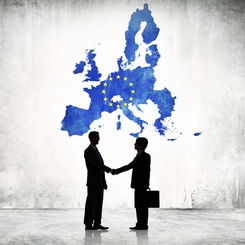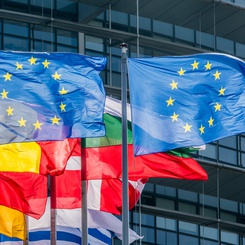And just like that, the British people have decided to leave the European Union. The ‘leave’ camp may have but a small majority, but it looks like it may be enough to enact their departure...
But, were they really and truly members of the EU to begin with? Were they members enough to have motivated such popular rejection? As it stood, the UK was not part of the Eurozone, Schengen, nor part of any police and judicial cooperation, and they participated in defense operations as an outsider.
The fall of the Pound Sterling has rattled nerves. Admittedly, its drop in value has been pretty spectacular, if predictable. But if the UK does leave the Union, what’s really important is how they manage their exit strategy.
In Brussels, they already have an amicable divorce settlement hashed out: The British government will enact Article 50 of the Treaty of Lisbon for the first time ever. In the meantime, trade must continue between the two entities to diminish the economic shock. The EFTA framework will likely be sufficient to sustain the market. That said, a durable trade agreement won’t be easily won since it will involve going though each chapter of previous agreements to see what still applies and what’s out.
What is certain is that negotiations need to happen quickly: too much uncertainty is always dangerous. Foreign investors in the UK - especially US, European, and African subsidiaries - need to know what they can expect.
What about a contagion effect? Since the UK wasn’t a member state like the others, it’s hard to predict what symbolic consequences the leave vote will have on other EU member states. What’s particularly interesting at this point is the consequences Brexit will have on the Britain’s union, as Scotland and Northern Ireland threaten to re-launch independence initiatives.
At any rate, the remaining EU member states need to use this moment of turmoil as an opportunity to send a strong signal to citizens: it’s time to put the European project into high gear, further integrate policies and get to the bottom of pressing issues: external borders, internal security, defense, but also economic and societal challenges including energy transition, fiscal and social harmonization, economic convergence, innovation...
So in the end, could Brexit be good news for the remaining European Union members? A lot still depends on how we handle the divorce.
It’s time to believe in Europe
Although with only a narrow lead, Brexit is still the triumph of fear. Fear fueled by the spread of populist sentiments (well beyond British borders), against reason and reality. These lies fuel talk in France of dropping the Euro and going back to the Frank.
It’s also the triumph of emotions, since Europe has failed to create strong feelings of belonging amongst its citizens, and failed to communicate clearly on the economic benefits of the Union. Our objective now is to avoid the demise of the European project as it falls prey to irresponsible nationalistic arguments.
Faced with this challenges, a symbolic re-engagement is already taking place as 27 heads of state come together and express their wished with one voice…









